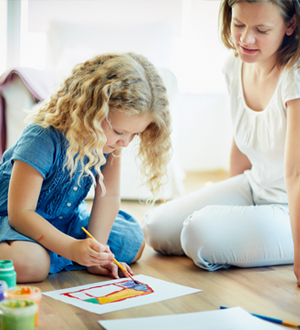In 1897, the famous Italian educator Maria Montessori began to develop a distinctive philosophy that would reshape the future of education. She realised the vital need to emphasis children’s independence, freedom within limits, and respect for each child’s natural psychological, physical, and social development. The Montessori method also helps young children learn faster by focussing on sensory-motor activities, using materials that develop cognitive abilities through direct experience: seeing, hearing, tasting, smelling, touching, and movement.
Freedom within limits means the kids help decide what their focus of learning will be, working within parameters set by their teachers. Montessori understood that internal satisfaction drives a child’s curiosity and interest, and results in joyful learning that is sustained over a lifetime.
Each child is valued as an individual. Montessori education recognizes that children learn in different ways, and accommodates all learning styles. All kids are free to learn at their own pace, each advancing through the curriculum when they are ready, guided by the teacher and an individualized learning plan.
By combining fun, playful learning techniques with enough structure and routine it helps prepare them easily for full-time education. Here are the primary Montessori Tips to help teach your kids at home:
- Make your child’s environment happy and safe, where they can feel relaxed but at the same time keen to explore. Children learn from everything around them.
- Try not to criticise your child too much, or they’ll judge people more when they grow up
- Praising your child often (but not too often!) helps them learn to appreciate what they receive
- If you behave fairly with your child, they will learn to be honest
- If you get angry with your child, they will learn how to quarrel from you
- Children that grow up in a safe place learn the meaning of trust
- Try to minimise punishments, so your child doesn’t grow up feeling guilty about everything
- Accepting your child’s ideas and encouraging them to express their feelings helps build their self- confidence
- Respect your child even if they make a mistake; they’ll learn sooner how to improve
- Help your child when they need you, but try not to interfere when they don’t
- If you always focus on the good side of your child, they’ll be less able to develop a bad side
- Help your child understand what they didn’t understand on their own
Studying while on summer break may seem boring, but it doesn’t have to be. Take the time to learn something new in a relaxed environment and go back to school next semester refreshed and ahead on your studies!
You can start to register with us today: https://www.smartkidsclubs.com/





